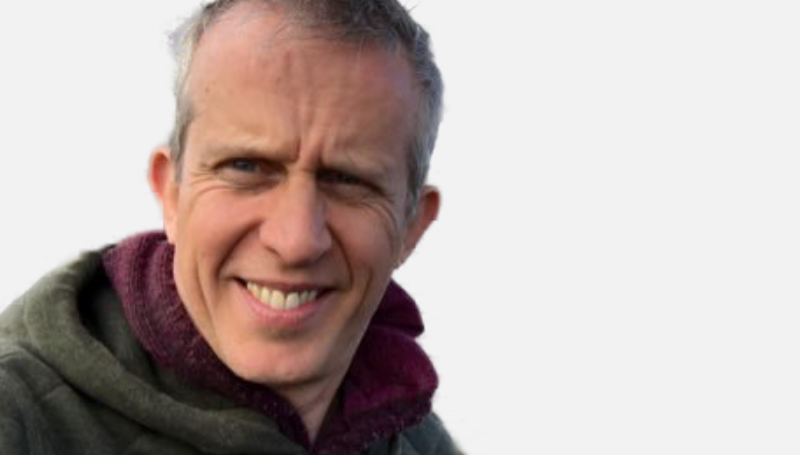Our approach
N4D helps strengthen systems, from local to global levels, for capturing, sharing and using knowledge and learning in order to influence policies and actions for nutrition from the bottom up. We believe that the people, communities and countries most vulnerable to malnutrition must be at the forefront of decisions which affect their lives. Where needed, we will support them to tell their own stories about what is working and what is not and to ensure that local and national realities inform global learning, response and support systems.
N4D aims:
Evidence-based decisions
N4D aims to ensure that nutrition policies & plans are informed by evidence & the people most affected.
Decisions turned into action
N4D helps strengthen systems which turn policies & plans into prioritised actions and improved nutrition outcomes.
Country-led global support
N4D seeks to ensure that local and national realities inform global support and accountability systems.
We are results focussed and evidence-based. We are constructively critical and challenge prevailing ideology where warranted whilst fostering collaboration and alignment.
We aim to influence and be influenced. We are open to dialogue and learning with others. Different contexts require different approaches. No one can know what is best in all situations. All knowledge and ideas can be revised on the basis of better evidence. Our understanding and approach is a work in progress not something to be defended and promoted at all costs.
We are pragmatic optimists. We believe bridges can be built between actors who share common nutrition goals but have radically different views on how to achieve them. We also believe that it is possible to influence through public and political pressure, those whose interests conflict with nutrition goals.
We will support, strengthen and avoid duplicating the roles of other actors. In particular, we are keen to avoid speaking on behalf of, or undermining the roles of organisations which consist of, and directly represent, the people most affected by malnutrition.
N4D will aim to influence decision-makers by being propositional, results and solutions focussed and constructively disruptive. Maintaining independence of thought and direction will be critical. We recognise that our goal to strengthen national level articulation of needs and solutions will require a carbon-footprint awareness.
Our team

Carmel Dolan
- EXPERTISE > 35+ years
- WORKED > DiFID | Nutrition Works | GNC | ENN | GNR
- KEY INTEREST > Understanding the importance of overcoming the silos between different forms of malnutrition and between humanitarian and development systems.
BIOGRAPHY
I’ve worked in nutrition for around 35 years, starting out in the humanitarian sector focussed on the large-scale management of wasting and infectious disease in the 1980’s Ethiopian famine. In complete contrast and after studying human nutrition at the still brilliant LSHTM, I spent 7 years with DFID (formerly ODA) designing, supporting and studying the impact of a nationally focussed multi-sectoral nutrition programme in Tanzania.
On returning to the UK, I co-founded and worked as a senior partner in NutritionWorks, a specialist consulting group providing policy, programme and technical advisory support across Africa, Asia and Middle East for 8 years before circling back to the humanitarian sector as interim GNC Coordinator which included time on the devastating Haiti earthquake.
I then took up the position of Technical Director at ENN for 10 years during which time I coordinated numerous technical workstreams, worked for 5 years on a large knowledge management support project to the SUN Movement and set up and co-edited a nationally focussed publication, Nutrition Exchange as well as Asia region focussed versions.
Perhaps my proudest work in ENN was co-leading on the links between wasting and stunting which has been very influential. I helped evolve the organisations strategy and direction to embrace a more holistic approach to nutrition and worked on numerous publications and peer reviewed papers and meetings. I invested a lot of my energy in what I hope has helped the sector to understand the importance of overcoming the silos between different forms of malnutrition and between humanitarian and development systems.
I’m very proud to be a member of the Independent Expert Group for the Global Nutrition Report which remains a vital resource for us all in tracking progress and holding us all to account for our efforts in reducing malnutrition.
When I’m not wearing my professional nutrition hat, I’m to be found in the flower beds talking to my plants, counting worms and studying honey-bees.

Chris Leather
- EXPERTISE > 25+ years
- WORKED > Action Against Hunger | Oxfam | CSM
- KEY INTEREST > Help strengthen the work of the organisations and initiatives in evaluation, strategic and operational development, facilitation & capacity building roles
BIOGRAPHY
With 25 years’ experience in international development, focusing on nutrition, food security and livelihoods, I am the youngster on the N4D team.
Following a brief flirtation with academia in the mid 1990’s, I decided that if I wanted to help change the world I needed to get out into it, get my hands dirty and other such clichés. Consequently, I joined Action Against Hunger, managed emergency food security programmes in various countries and learnt how to grow up rather quickly. The passion and commitment of Action Against Hunger’s volunteers to live up to the organisation’s name remain with me to this day.
The next few years were spent at Oxfam GB’s headquarters in the UK supporting country programmes and increasingly trying to ensure that global advocacy and campaigning were informed by country realities. On the back of the 2009 global food crisis, I had the good fortune to be posted to Rome, as Oxfam’s food and agriculture adviser and became involved in the reform of the Committee on World Food Security (CFS). I was abruptly and justifably made aware, by social movements already active in Rome, of the need for big INGOs like Oxfam to avoid crowding out the voice of organisations directly representing the most affected people. It was, for me, a sharp and much needed awakening.
On the back of the CFS reform, I worked with a wide diversity of civil society organisations to help establish the Civil Society Mechanism (CSM) for relations with the CFS and became a member of the CFS Advisory Group. Thereafter, CSM members selected me as coordinator of the CSM Secretariat, constantly, and quite rightly, reminding me that my role was to facilitate participation, not to represent members in the CFS – another powerful lesson. This experience was at times a tough journey, but it left me with a sense of optimism that a diverse range of actors can find ways of working together and achieve results, even if they do not always see eye to eye.
I ended my work with the CSM in 2014, shortly before the birth of my twin boys, with a strong feeling of achievement, learning and exhaustion. As you can imagine better than I could at that time, I was just about to find out the true meaning of exhaustion as I simultaneously embarked on the paths of parenthood and consultancy.
As a consultant, I have been able to utilise prior experiences and learning to help strengthen the work of the various organisations and initiatives with whom I have worked in evaluation, strategic and operational development, facilitation and capacity building roles. I have certainly learnt a lot from engaging with them and look forward to continuing to share and learn through my work with N4D.
When I am not working, I am being educated, moulded and entertained by my sons.

Jeremy Shoham
- EXPERTISE > 35+ years
- WORKED > LSHTM | UN consulting | Nutrition Works | ENN
- KEY INTEREST > Enabling institutional architecture underpinning nutrition programming particularly in contexts of protracted fragility.
BIOGRAPHY
I have worked as a nutritionist for over 35 years – but still struggle with ‘odds ratios’. My early career was in academia as a lecturer at the London School of Hygiene and Tropical Medicine during which time I established the module on nutrition in humanitarian settings as part of the Masters on Public Nutrition. I will always be grateful for my time at LSHTM both as a student and lecturer, for providing me with what I consider to be a truly multi-disciplinary public nutrition perspective. In the early years I combined my academic work with consultancies for UN, donor and INGOs focussing on humanitarian contexts – particularly in east and southern Africa. I still have vivid memories of the 1984 famine in Ethiopia and the 1991/2 famine in Somalia which had a huge impact on my professional interests.
Due to a low boredom threshold and some very persuasive colleagues, I helped set up the consulting group ‘NutritionWorks’ and between 1999-2014 I undertook a variety of work for NW mainly focussing on programming and policy issues at national and international level.
In 1996 I set up ENN and have, with Carmel and other colleagues, overseen it’s development and key role in providing knowledge management support to the nutrition sector. Under the leadership of a small number of Technical Directors, ENN expanded it’s scope from humanitarian settings to all contexts with high malnutrition burdens and went on to develop a number of important research areas as well as taking a lead on many important developments in the world of nutrition over the past quarter of a century.
Twenty five years is a long time in any one institution and partly due to increasing differences in strategic vision for ENN, I have recently left the organisation. My aim in establishing N4D with respected colleagues is therefore to ensure that for the remainder of my career I am able to focus on what I believe are the critically important and often neglected areas of nutrition. I believe more than ever that nutrition is best served through a broad public nutrition approach rather than a narrow technical focus which does little to challenge vested interests or hasten real progress.
Apart from a life-long love affair with jazz (check out my albums on spotify and youtube) a key area of interest is now the enabling institutional architecture underpinning nutrition programming particularly in contexts of protracted fragility.

Daniel Silver
- EXPERTISE > 4 years
- WORKED > Independent Commission for Aid Impact’s (ICAI)
- KEY INTEREST > I joined the team to support their work on strengthening policies and actions for nutrition.
BIOGRAPHY
I joined N4D in August 2022 after 4 years working in evaluation, consultancy and research across both humanitarian and development sectors. After previously working with Chris on several projects, including the Independent Commission for Aid Impact’s (ICAI) review of then-DFID’s nutrition portfolio, I joined the team to support their work on strengthening policies and actions for nutrition.
Our priorities
The following issues will be the initial focus of work:
1: Strengthening the provision of country specific support in response to country specific needs
The SUN Movement is the foremost, international, multi-stakeholder initiative for facilitating support to countries in their efforts to achieve nutrition goals. Evaluations and reviews of the Movement show there is a need to improve how SUN facilitates country specific support for delivery and nutrition impact. N4D will aim to strengthen linkages between nationally identified needs for nutrition and global and regional support mechanisms, fora and platforms including the SUN Movement.
N4D will:
- Respond to selective country requests for technical support within N4D competencies
- Help the SUN Movement global support system enhance country specific support in response to needs
- Support the SUN Movement’s knowledge management and learning (KML) system for capturing and sharing learning
- Influence the development of the SUN Movement strategy and roadmap
- Influencing and inputting into the Global Nutrition Report
2: Promoting coherent humanitarian-development actions for nutrition
Well-known divisions between humanitarian and development systems are limiting progress in an ever-growing number of fragile settings. Insufficient attention is paid to balancing investments for the treatment and prevention of malnutrition. Scaling up the prevention and treatment of malnutrition needs dynamic and country driven capture of learning and evidence. An enhanced country-specific understanding of how the political economy of nutrition enables or constrain effective scale up is vital.
N4D will:
- Capture good policy, coordination and programming practice from country level
- Explore opportunities for effective financing for prevention of malnutrition in contexts of protracted fragility
- Promote coordinated, country specific support in response to country needs (as part of work stream 1)
3: Policies on food systems for nutrition
There is growing international recognition that food systems are not delivering adequate and healthy food and that they contribute to, and are impacted by, climate change. The COVID-19 pandemic has highlighted that malnutrition increases people’s vulnerability to the virus. At the same time, measures to control the spread of the virus are exposing faultlines in the global food system which predispose many to social and economic vulnerability and further risk of malnutrition. Even before the pandemic, global political processes were underway to develop policies to promote more sustainable food systems which deliver healthy diets, contribute to reductions in malnutrition and help prevent climate change. The CFS is developing voluntary guidelines to inform national policies and the UN Secretary General is planning to convene a Food Systems Summit in 2021.
The current nutrition architecture often fails to embed itself sufficiently into institutional fora where critical decisions around food systems are made. This results in failure to adopt a nutrition lens in food system planning and development. Furthermore, nutrition institutions are largely configured around different forms of undernutrition (wasting, stunting, micronutrient malnutrition) as distinct from the ever growing overweight, obesity and diet related NCDs crisis. Many countries are experiencing both forms of malnutrition and we need to understand how to better link these concerns to reduce the burden of all forms of malnutrition simultaneously. Better and more equitable food systems and diets are central to this realisation.
N4D will:
- Engage in processes to develop evidence-based policy guidance for the development of food systems which do more to support nutrition, including addressing the causes and consequences of COVID-19.
Our activities
KNOWLEDGE
Knowledge is the basis for all of our work. We support the capturing, sharing and operationalisation of existing knowledge and selectively undertake primary research and evaluations to help fill gaps in knowledge relating to our priorities.
LEARNING
We promote access to learning opportunities and help develop capacities to implement effective actions for nutrition. We provide technical support and facilitate strategy and operational development processes.
INFLUENCING
Influencing is our primary activity. We work with and support others to promote effective policies and actions leading to better nutrition for all. We develop our own positions and undertake influencing activities where this adds value.
